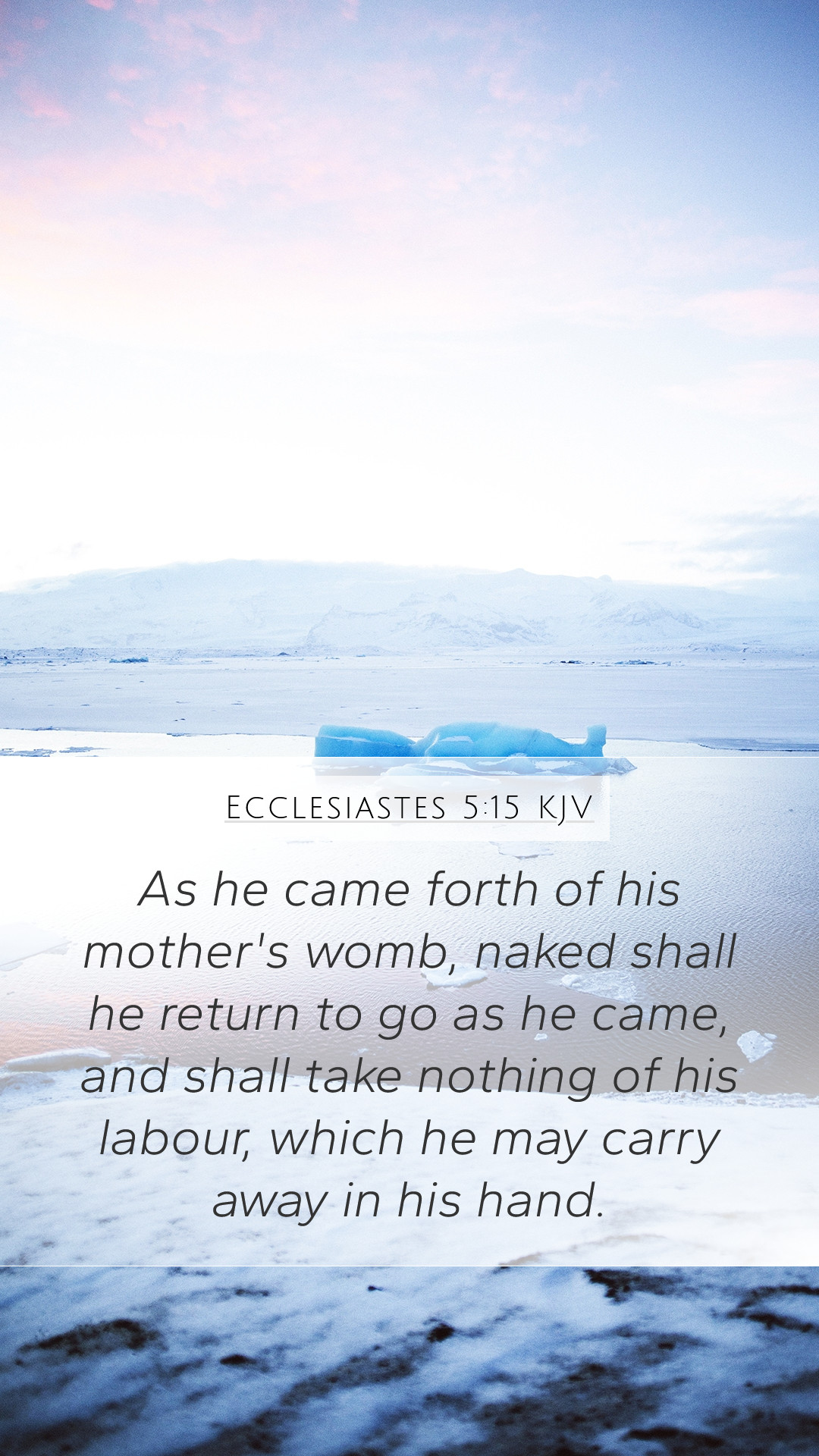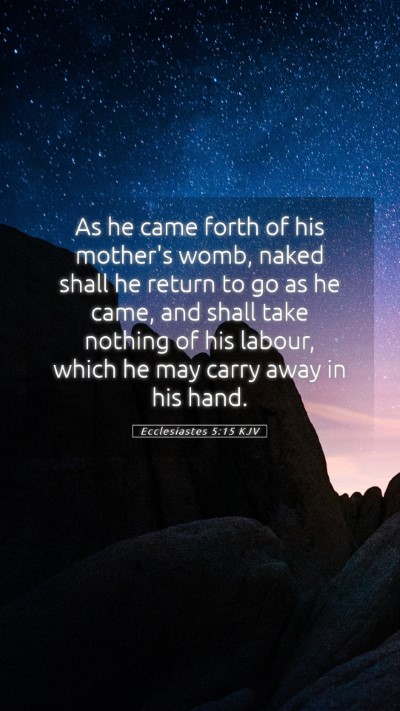Understanding Ecclesiastes 5:15
Ecclesiastes 5:15 states: "As he came from his mother's womb, naked shall he return, to go as he came: and shall take nothing of his labour, which he may carry away in his hand." This verse emphasizes the transient nature of human existence and the futility of material wealth. Below, we explore the meaning and interpretations from various public domain commentaries.
Bible Verse Meanings
The core meaning of Ecclesiastes 5:15 is the inevitability of death and the fact that material possessions cannot accompany us into eternity. This reflects the broader themes found throughout Ecclesiastes, where the writer, often identified as Solomon, reflects on the vanity of human pursuits.
Bible Verse Interpretation
-
Matthew Henry's Commentary:
Matthew Henry emphasizes the idea that the moment of death strips a person of all earthly possessions, much like one comes into the world without anything. The inevitable return to dust serves as a reminder that material wealth should not be prioritized over spiritual richness.
-
Albert Barnes' Notes:
Albert Barnes reflects on the futility of accumulating wealth, noting that human labor and riches ultimately do not matter in the face of death. He highlights the concept that life should be lived with an awareness of its brevity, leading to a more meaningful engagement with spiritual matters rather than material gain.
-
Adam Clarke's Commentary:
Adam Clarke discusses the philosophical aspects of the verse, pointing out that the earthly endeavors are temporary and will not influence our eternal fate. His analysis emphasizes finding joy and fulfillment in life's spiritual engagements rather than in material possessions, which are ultimately left behind.
Bible Verse Understanding
Understanding Ecclesiastes 5:15 within its context is crucial. The book itself deals extensively with themes of vanity and the ephemeral nature of life. By focusing on what we can take with us—our actions and character—believers are encouraged to invest in their relationships with God and others.
Bible Verse Explanations
The explanation of the verse goes beyond surface-level interpretation. It invites individuals to reflect on their life priorities and how they align with eternal values. It challenges readers to question what truly has value in life.
In-Depth Analysis and Biblical Exegesis
An in-depth analysis reveals the literary structure of Ecclesiastes, presenting a series of contrasts: gain versus loss, wisdom versus folly, and life versus death. This verse serves as a poignant conclusion to the observations made throughout the book regarding human limitations and impermanence.
Bible Study Insights
For Bible study groups exploring the themes of Ecclesiastes, this verse can serve as a starting point for discussions on spirituality, priorities, and the impact of a materialistic culture. It can also be beneficial for online Bible study formats, allowing participants to share personal reflections on what the verse means in their lives.
Related Bible Cross References
- Job 1:21 - "Naked came I out of my mother's womb, and naked shall I return thither."
- Psalm 49:17 - "For when he dieth, he shall carry nothing away: his glory shall not descend after him."
- 1 Timothy 6:7 - "For we brought nothing into this world, and it is certain we can carry nothing out."
- Luke 12:15 - "Take heed, and beware of covetousness: for a man's life consisteth not in the abundance of the things which he possesseth."
Application of Ecclesiastes 5:15
Applying this verse to daily life encourages believers to focus on what is eternal—our character, relationships, and spiritual health. It offers a powerful reminder to evaluate the impact of our daily choices and to foster a relationship with God that transcends material pursuits.
Conclusion
In conclusion, Ecclesiastes 5:15 serves as a profound reminder of our humanity and the limitations of earthly possessions. Through careful interpretation and understanding of this verse, believers can reassess their priorities and live in a way that honors their spiritual journey rather than merely chasing after fleeting material wealth.


